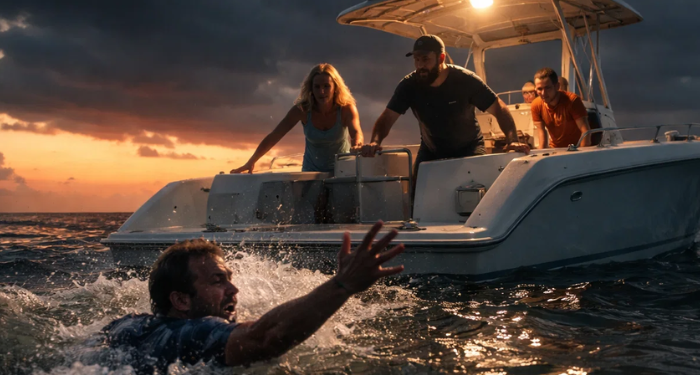Florida’s coastlines, lakes, and rivers are amazing. Boating here defines our lifestyle. It’s a cherished escape, a chance to unwind. It brings incredible memories. But dangers can lurk beneath the surface. Every year, tragic incidents happen on our waterways. Many are preventable. At MANGAL, PLLC, we’re your personal injury law firm in Clermont, FL. Our commitment goes beyond legal battles. We truly believe in sharing vital information. This helps prevent devastating accidents.
Let’s talk about it. Understanding why boating accidents turn fatal is key. It makes our waters safer. Many factors contribute to these incidents. But most boating fatalities stem from human error. Key culprits include failing to wear a life jacket, operator distraction, and alcohol or drug impairment. We’ll dive into these factors. Smart choices can keep you safe.
What is the Leading Cause of Drowning in Boating Accidents?
One of the leading causes of drowning fatalities in boating accidents is the failure to wear a life jacket or personal flotation device (PFD). This simple omission is consistently highlighted by the U.S. Coast Guard as the primary factor in boating-related deaths where the cause is known.
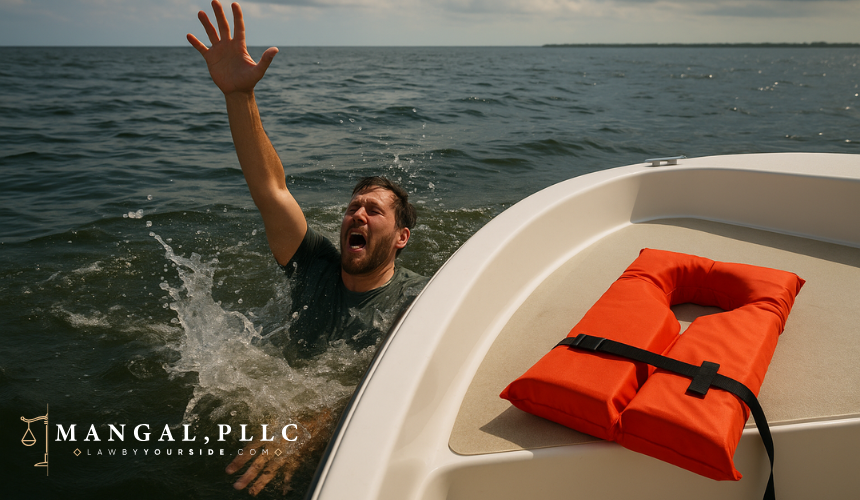
Why is wearing a life jacket so critical? Many victims of fatal boating accidents do not anticipate ending up in the water. An unexpected jolt, a sudden sharp turn, or a collision can quickly eject individuals from a vessel. Once submerged, even strong swimmers can be overwhelmed. Factors like cold water shock, strong currents, or injuries sustained in the initial incident can make it nearly impossible to put on a life jacket after falling overboard.
How Does Operator Inattention Directly Contribute to Boating Fatalities?
Operator inattention is a leading human error that directly causes a significant number of boating accidents and subsequent fatalities. This critical factor involves a lapse in vigilance by the person operating the vessel, leading to dangerous and often preventable scenarios.
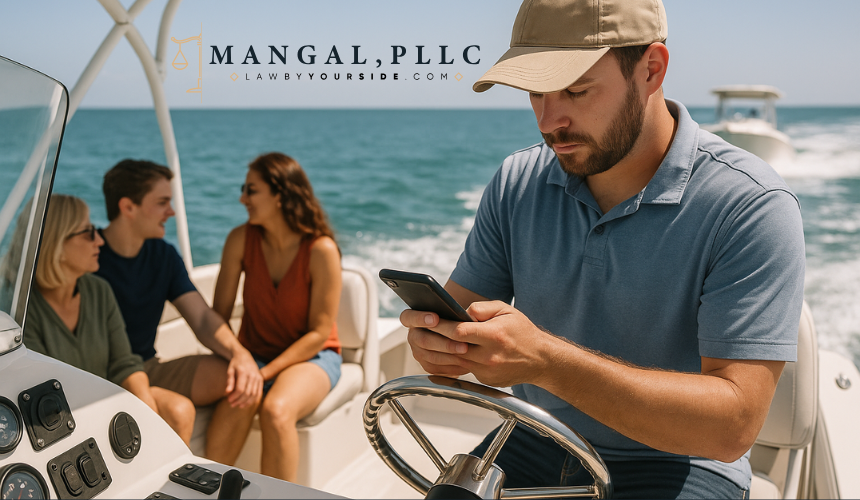
Inattention at the helm can show up in many ways: distractions from passengers, mobile devices, or even beautiful scenery; failing to maintain a proper lookout; or simply not being fully engaged in the task of safely operating the boat. Unlike driving on a road, the marine environment is dynamic and less predictable, demanding constant awareness of other vessels, swimmers, navigation aids, and rapidly changing conditions. A momentary lapse can lead to severe consequences, such as:
- Collisions: Impacting other vessels, fixed objects like docks or buoys, or submerged hazards.
- Falls Overboard: Passengers or the operator being unexpectedly ejected from the vessel, especially if the boat’s movement is sudden or erratic.
- Capsizing: The boat overturning due to improper handling, particularly in challenging water conditions or when encountering large wakes.
This negligence often directly sets the stage for fatal events by preventing the operator from identifying and reacting to imminent dangers in time, quickly turning a pleasant day on the water into a catastrophe.
What Role Do Alcohol and Drug Use Play in Fatal Boating Accidents?
Boating Under the Influence (BUI) of alcohol or drugs significantly impairs an operator’s judgment, coordination, and reaction time, making it a major and frequently fatal contributing factor to boating accidents. Given Florida’s extensive waterways, enforcement of BUI laws is a serious matter.
The effects of alcohol are often amplified on the water due to a combination of sun exposure, wind, noise, and the constant motion of the vessel, which can lead to accelerated fatigue. Even a small amount of alcohol can dangerously diminish an operator’s ability to react quickly to hazards, navigate safely, or even swim effectively if an accident occurs.
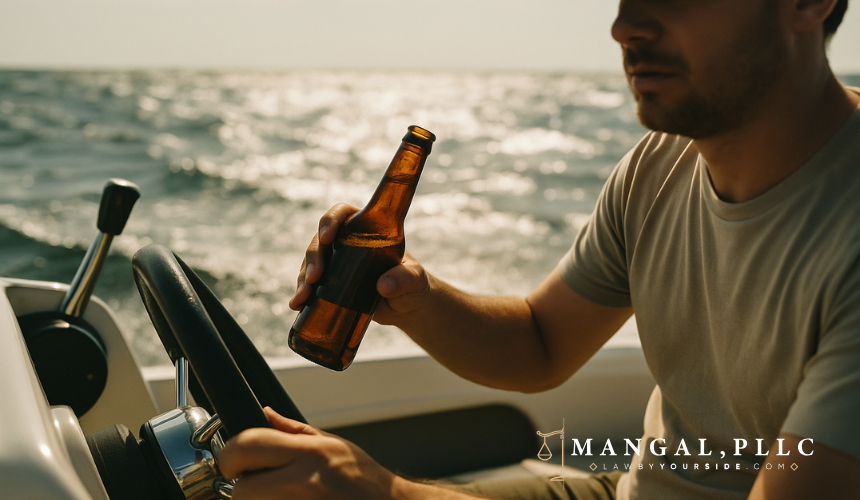
According to the U.S. Coast Guard’s 2024 statistics, alcohol continued to be the leading known contributing factor in fatal boating accidents nationwide, accounting for 92 deaths, or 20% of total fatalities.
In Florida, operating a vessel while impaired is illegal. Florida Statutes § 327.35 prohibits operating a vessel with a blood alcohol concentration (BAC) of 0.08% or higher, mirroring the legal limit for driving a motor vehicle. Penalties for BUI can be severe, including substantial fines, jail time, and community service.
Moreover, an individual can still face BUI charges even if their BAC is below 0.08% if law enforcement determines their normal faculties are impaired by alcohol or drugs. This underscores the critical importance of staying sober when at the helm to protect yourself and everyone else on the water.
Beyond Human Error: What Other Factors Can Lead to Boating Fatalities?
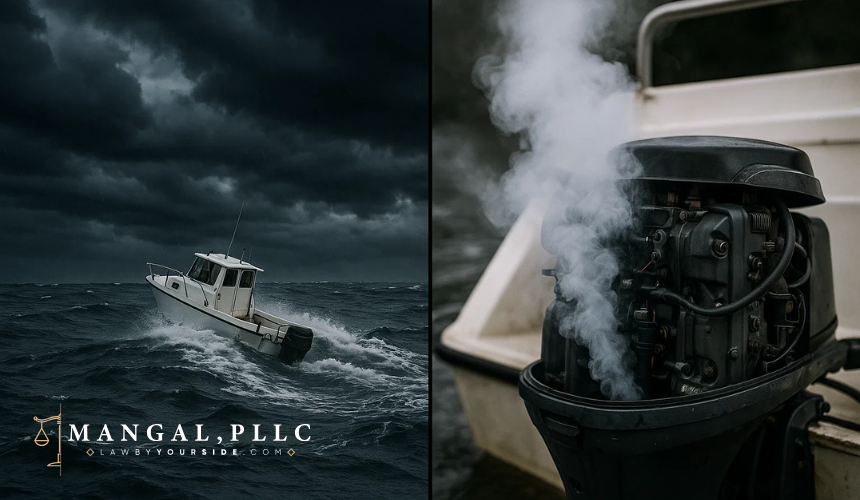
While human factors are clearly the most prominent causes of boating fatalities, certain environmental conditions and mechanical issues can also contribute to tragic incidents. Understanding these additional risks helps paint a complete picture of boating safety.
What Makes Capsizing and Falls Overboard So Dangerous?
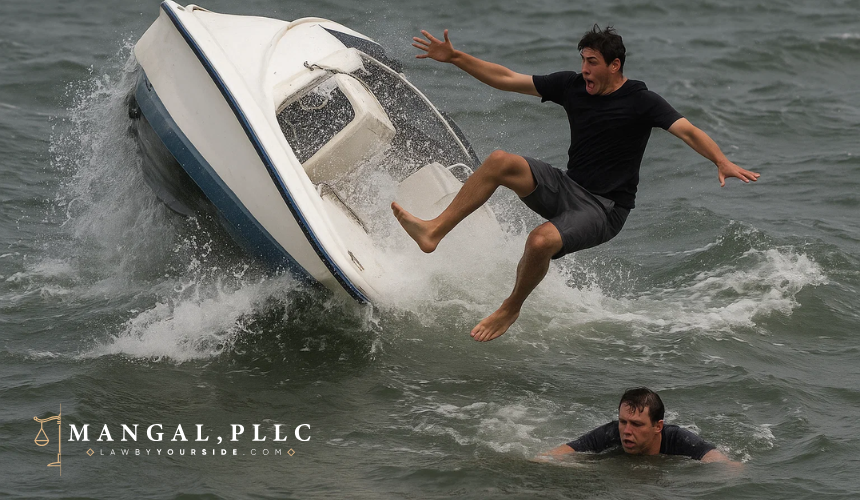
Capsizing (when a boat overturns) and falling overboard are common in fatal boating accidents. They often lead directly to drowning. A boat can capsize for several reasons. It might be overloaded. Weight might be distributed incorrectly. Or it could hit rough weather or large wakes. Falls overboard often happen due to unexpected movements. Choppy water or an impaired operator can also cause them. These moments are incredibly dangerous. They instantly plunge people into the water. Without a life jacket, the situation quickly turns fatal. These events are sudden and unforeseen. They leave virtually no time to prepare. This strongly reinforces the need for constant vigilance and consistent PFD use.
How Does Excessive Speed Lead to Fatal Boating Accidents?
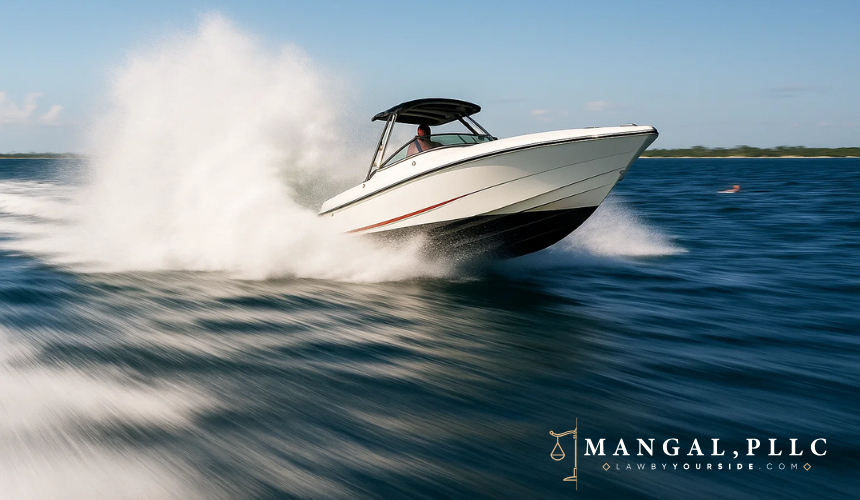
Driving a boat too fast cuts reaction time. It dramatically increases collision severity. On the water, distances can deceive you. Hazards are less visible than on roads. High speeds drastically shrink your window to react. You might not identify obstacles, other vessels, or swimmers in time. Excessive speed can also make a boat unstable. This can lead to capsizing. Passengers can be violently ejected. The U.S. Coast Guard lists excessive speed as a top contributing factor. Operating too fast for conditions is risky. This includes crowded waterways, low visibility, or rough seas. It critically increases the risk of a fatal incident.
Can Mechanical Failures Cause Fatal Boating Incidents?
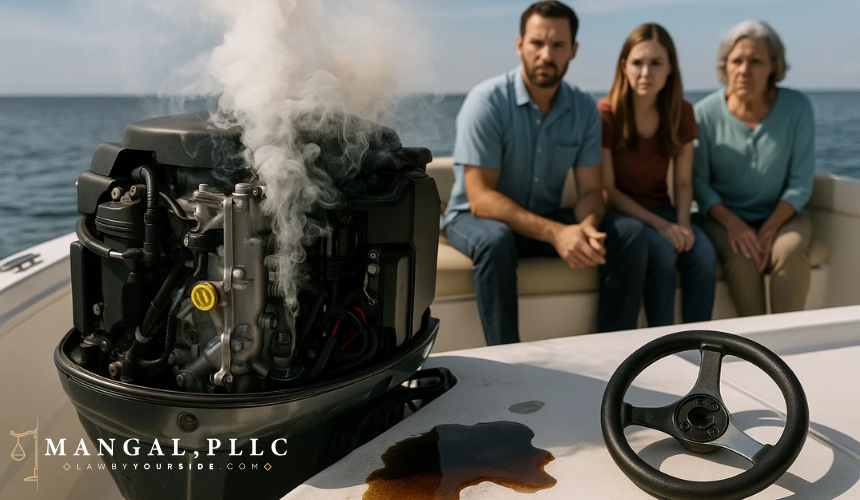
Though less frequent than human error, mechanical failures can indeed cause catastrophic boating incidents. Issues such as engine malfunctions, steering system failures, fuel leaks leading to explosions, or structural integrity problems can quickly transform a pleasant outing into a life-threatening situation. These failures often highlight the paramount importance of routine vessel maintenance, thorough pre-departure checks, and ensuring all critical equipment is in proper working order. While mechanical issues are not the primary cause of fatalities, when they occur, they can lead to rapid sinking, onboard fires, or complete loss of control, making escape and rescue incredibly difficult.
How Can Boating Fatalities Be Prevented? Actionable Safety Measures
Preventing boating fatalities hinges on responsible operator behavior, strict adherence to safety regulations, proper equipment use, and continuous education. Most boating accidents are preventable, and taking proactive steps can drastically reduce risks for everyone on board.
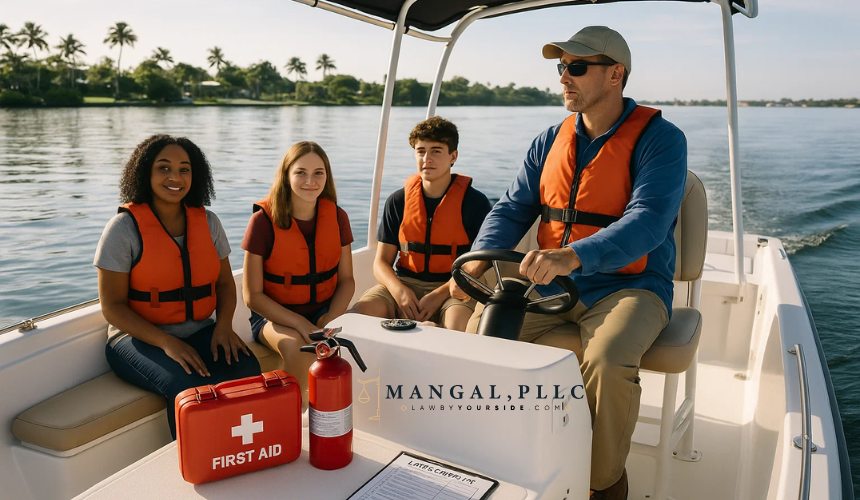
Here are key measures every boater should take to ensure safety on Florida’s beautiful waterways:
- Always Wear a Life Jacket: This is the single most important safety action. Ensure everyone on board, including yourself, wears a properly fitted, U.S. Coast Guard-approved life jacket at all times, regardless of swimming ability or water conditions. It is your most vital piece of safety equipment.
- Never Boat Under the Influence: Absolutely avoid alcohol and drugs before and during boating. Designate a sober operator if alcohol is consumed on board. Your judgment and reaction time are critical.
- Stay Alert and Maintain a Proper Lookout: Always be acutely aware of your surroundings. This includes other vessels, swimmers, hazards, and changing weather patterns. Actively minimize all distractions from passengers, mobile devices, or other non-essential activities.
- Take a Boating Safety Course: Formal education significantly improves boating safety knowledge and skills. In Florida, specific boating safety courses are required for certain operators born after a particular date. Even if not required, these courses are invaluable.
- Understand and Obey Navigation Rules: Familiarize yourself with marine navigation rules, channel markers, and local speed limits. These rules are designed to prevent collisions and maintain order on the water.
- Check Weather and Water Conditions: Before departing, always consult the marine weather forecast. If conditions worsen unexpectedly, return to shore or seek safe harbor immediately. Do not try to outrun a storm.
- Perform Pre-Trip Safety Checks: Before every outing, thoroughly inspect your boat’s engine, fuel system, steering, lights, and all safety equipment. A well-maintained vessel is a safer vessel.
- File a Float Plan: Inform a trusted friend or family member of your detailed boating itinerary, including your destination, expected return time, and who is on board. This plan is crucial for rescue efforts if you do not return on schedule.
- Carry Required Safety Equipment: Ensure you have all necessary safety gear onboard and that it’s easily accessible. This includes flares, a fire extinguisher, a first-aid kit, and a sound-producing device (like a horn or whistle).
Use an Engine Cut-Off Switch (ECOS): If your vessel is equipped with an ECOS, ensure the operator wears the lanyard. This device automatically stops the engine if the operator falls overboard, preventing the boat from becoming a runaway hazard.
Prioritizing Safety for Every Voyage with MANGAL, PLLC
Understanding what causes boating fatalities is crucial. This includes wearing life jackets, avoiding impairment, and staying attentive. It’s fundamental to safer waterways in Florida. The call of the open water is strong. But responsibility is paramount.
Embrace safety best practices. Stay informed with USCG guidelines. Exercise sound judgment. Boaters can dramatically reduce risks. This ensures every journey is safe and enjoyable. For themselves and their passengers.
At MANGAL, PLLC, we believe in education and prevention. This reduces tragic accidents. But sometimes, despite precautions, harm occurs. This can be due to unforeseen events or another’s negligence. If you or a loved one had a boating accident, our trusted Clermont Personal Injury Attorney | MANGAL, PLLC, is here. We offer personalized attention. We fight vigorously for justice. Attorney Mangal personally oversees every case. You’ll never be left wondering about its status. Contact us today to discuss your case for free.
Frequently Asked Questions (FAQ)
Here are some common questions about boating fatalities and safety:
What is the single most common cause of boating fatalities?
Drowning is the leading cause of death in boating incidents, primarily because victims were not wearing life jackets.
Is alcohol a major factor in Florida boating accidents?
Yes, alcohol use is consistently the leading known contributing factor in fatal boating accidents nationwide, accounting for 20% of fatalities in 2024.
What does “operator inattention” mean in boating?
Operator inattention refers to distractions or a lack of focus by the boat’s operator, preventing them from maintaining a proper lookout and safe operation, often leading to accidents.
Are boating accidents always due to human error?
While human error (such as inattention, inexperience, or alcohol use) is the dominant factor, mechanical failures and hazardous environmental conditions can also contribute significantly.
What is the most important piece of safety equipment on a boat?
A properly fitted, U.S. Coast Guard-approved life jacket for every person on board is considered the most critical piece of safety equipment.
Do boating safety courses really help prevent accidents?
Yes, the USCG reports that in 2024, approximately 70% of deaths occurred on vessels where the operator had not received any boating safety instruction, highlighting the effectiveness of these courses.
Can adverse weather conditions cause fatal boating accidents?
Yes, hazardous weather can lead to capsizing, swamping, or loss of control, especially if conditions are not monitored or if boaters are unprepared, significantly increasing the risk of a fatal incident.
What should I do if my boat capsizes or I fall overboard?
If possible and safe, always try to stay with the boat, as it is generally easier for rescuers to spot a vessel than an individual. Most importantly, always wear your life jacket – it is your best chance of survival.
